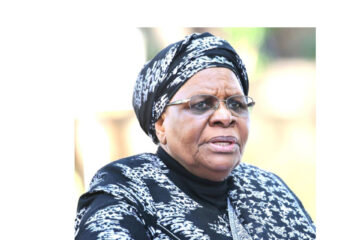Tujoromajo Kasuto
The City of Windhoek currently has 54 009 installed pre-paid electricity meters with an annual revenue of over N$533 000 00000.
According to the highlights from the Municipal Council of Windhoek ordinary council meeting held on 10 August pre-paid meter customers require tokens from the CoW’s prepayment system server, which is run on Syntell software.
The council yesterday resolved that older meters need replacement with Standard Transfer Specifications (STS) compliant meters in order to manage the token identifier roll-over process in order to prevent meters from running out of range, preventing them from accepting new tokens.
To overcome this, all prepayment meters will require the entering of two key change tokens to reset each meter to a new reference base date.
Further on the meeting highlights take-over of electrical infrastructure assets in the extended boundaries of Windhoek, the CoW has attempted on several occasions since 2011 to take over the electrical infrastructure assets in Brakwater, Dobra, Nubuamis and Groot Aub.
These attempts have so far been unsuccessful, because NamPower requires compensation for the assets alienation to the CoW.
Currently all municipal services are provided by the City of Windhoek, except electricity distribution, which is still done by NamPower.
The Council concluded that, ‘’the strategic executive for electricity at the CoW will now again approach NamPower and other private entities in the extended boundaries of Windhoek to negotiate the take-over of electrical infrastructure based on the outcome of an asset aluation.’’
Furthermore, in terms of the energy audit recommendations implementation plan for council Buildings, Council approved the CoW energy audit recommendations implementation plan.
An energy audit pilot exercise was undertaken by the CoW electricity department in partnership with the Namibia University of Science and Technology (NUST) on the department’s office block and the City’s headquarters (Town House) to determine the best way in which the electricity bill of the two buildings can be reduced.The council said that the audit methodology will then be used as a basis to roll out the same measures to all other CoW buildings.
The cost of implementing the recommendations of the audit at the two buildings is N$3 190 000.
‘’The investment has a payback period of 2.95 years and a return on investment of 239.11% for the electricity department building while similarly the payback period for Town House is 2.4 years and the return on investment here is 324.78%,’’ says the City.




